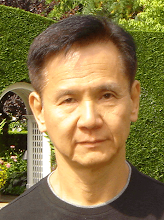This first phase lasts for 2 weeks and about 10 pounds of loss should be expected. Low glycemic index and low glycemic load carbohydrates and unsaturated fat diet includes non-starchy vegetables, fruits, eggs, nuts, lean meats, fish, low fat dairy including skim milk, low fat cheese and yogurt, olive and canola oils, soy foods including unsweetened soy milk, tofu and a lot of soups, especially vegetable soups. Recipes are not important, you can cook almost any way you like just watch what you used to prepare the meals. People with elevated cholesterol can avoid egg yolk. Bread, rice, potato, pasta, cereals, beans, fruit juice, whole milk, processed meats are not permitted in this 2 weeks phase. The reason that cereals and beans are not allowed for this phase is because some of them have moderate degree of glycemic load (GL) due to larger serving size although they have low glycemic index (GI). In other words, although glucose absorption is slow but total amount of glucose is relatively high per serving as compare with non-starchy vegetables. Several studies have shown that low GI or GL diets lost more weight and had more improvement in lipid profile than other diets did. This first phase shouldn't last for more than 2 weeks to prevent muscle loss, although it can be repeated if necessary. At least 6 of the 10 pounds loss is water loss, so you are actually losing about 2 pounds per week, not the fast weight loss I was warning against earlier (second paragraph of "My Success"). With the help of exercise program, this 2 pounds per week loss can mostly be fat loss.
Commercial salad dressings and ketchup should be avoided. Make your own salad dressing with vinegar, olive oil, lemon juice and pepper powder. Total amount of calories will be reduced each meal so it is important to have 2 snacks a day between meals. Try to keep the same or adequate portion sizes but replace some ingredients with high fiber vegetables, which are filling and low in calories. To further satisfy your stomach you should have a beverage like unsweetened drink, tea, coffee or soup with each meal or snack. Snacks should consist of small handful of nuts and seeds, skim milk, low fat dairy, soy foods and/or vegetables. If you have late breakfast, you don't need to snack before lunch. The second snack can be between dinner and bedtime for late sleepers as long as you don't eat within 3 hours before bedtime. Actually one of the best way to lose weight in my experience is going to bed early without any late night snack, and has an early morning exercise.
Adequate sleep can prevent weight gain due to proper leptin production to suppress appetite, increase metabolism and burn fat. Excessive hunger should be avoided because it will trigger starvation protection mechanism and produce cortisol. It will increase blood glucose by inhibiting extrahepatic tissue uptake, store fat and also improve appetite. If you have enough low glycemic index foods to satisfy yourself you can very quickly ease out rice and starchy foods.
Prolong dieting results in glycogen depletion, so protein and fat become the main sources of fuel. Normally, brain can only use glucose, which can come from protein (not from fat) when blood glucose is low. The brain has the capacity to adapt to the use of ketone bodies from fatty acid oxidation during starvation and diabetes mellitus (glucose can't be utilized due to lack of insulin). Our body has plenty of fat to be used, but you don't want to burn body protein (mainly muscle, and rarely from some vital structural tissue like heart muscle in prolong starvation). Protein foods take time to empty from stomach so you feel full longer. They will slow glucose absorption and if needed can covert to glucose, this will stabilize blood sugar.
Usually about 30% of total calorie intake should be from protein (high protein diet only affect kidney with impaired function, but serum calcium can be depressed if too much protein is used as fuel for a long time), and 40% from carbohydrates. Actually, percentage of carbohydrate can be lower. Stored glycogen holds about 3 to 4 times more water with it. Water is required for fat metabolism, and its metabolite, ketone body, has diuretic effect. Because of reduced carbohydrates intake, glycogen depletion and increased fat burning, the initial weight loss is mainly water loss. This water loss will be restored once carbohydrate's intake increases. Reduced calorie intake may also decrease the body metabolism. So don't be upset over stalled weight loss after initial success. The key is to keep glycogen low but not too low for too long (muscle wasting), so fat can be used as energy source.
High degree of determination and self-motivation will prove fruitful. If you think first phase is too restrictive you can skip it and start second phase right away, and just have slower weight loss initially.
Remember, excess body fat mainly comes from too much carbohydrate intake, and cold-water fish (wild salmon, sardines, herring, mackerel and trout) is the best source of protein and unsaturated fat. Do take 1000 mg fish oil 1 to 3 capsules a day. In this phase you should already develop your own exercise routine which should include stretching, strength (weight bearing) training and cardio exercise.
Friday, February 12, 2010
Subscribe to:
Post Comments (Atom)

No comments:
Post a Comment